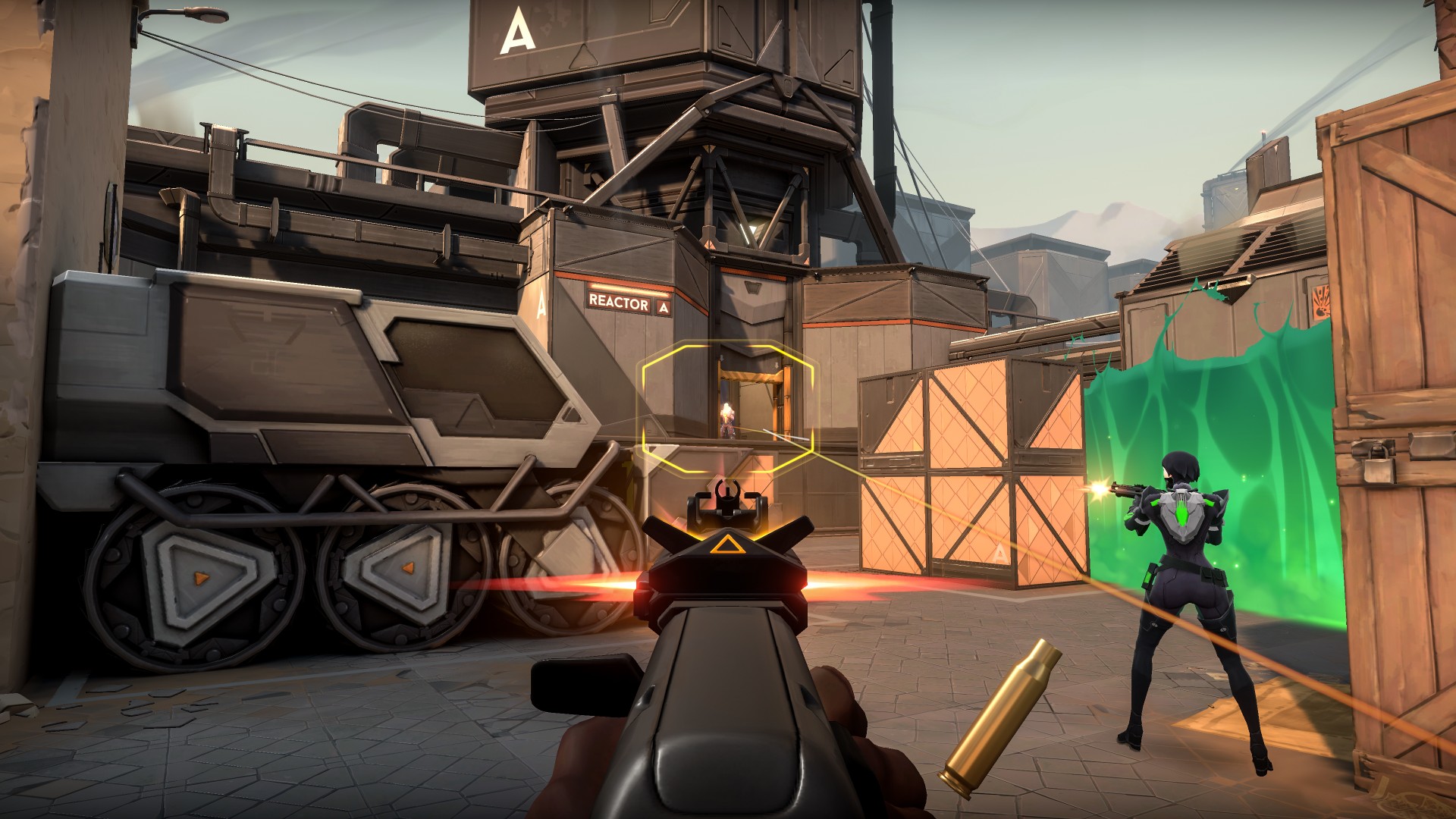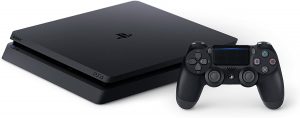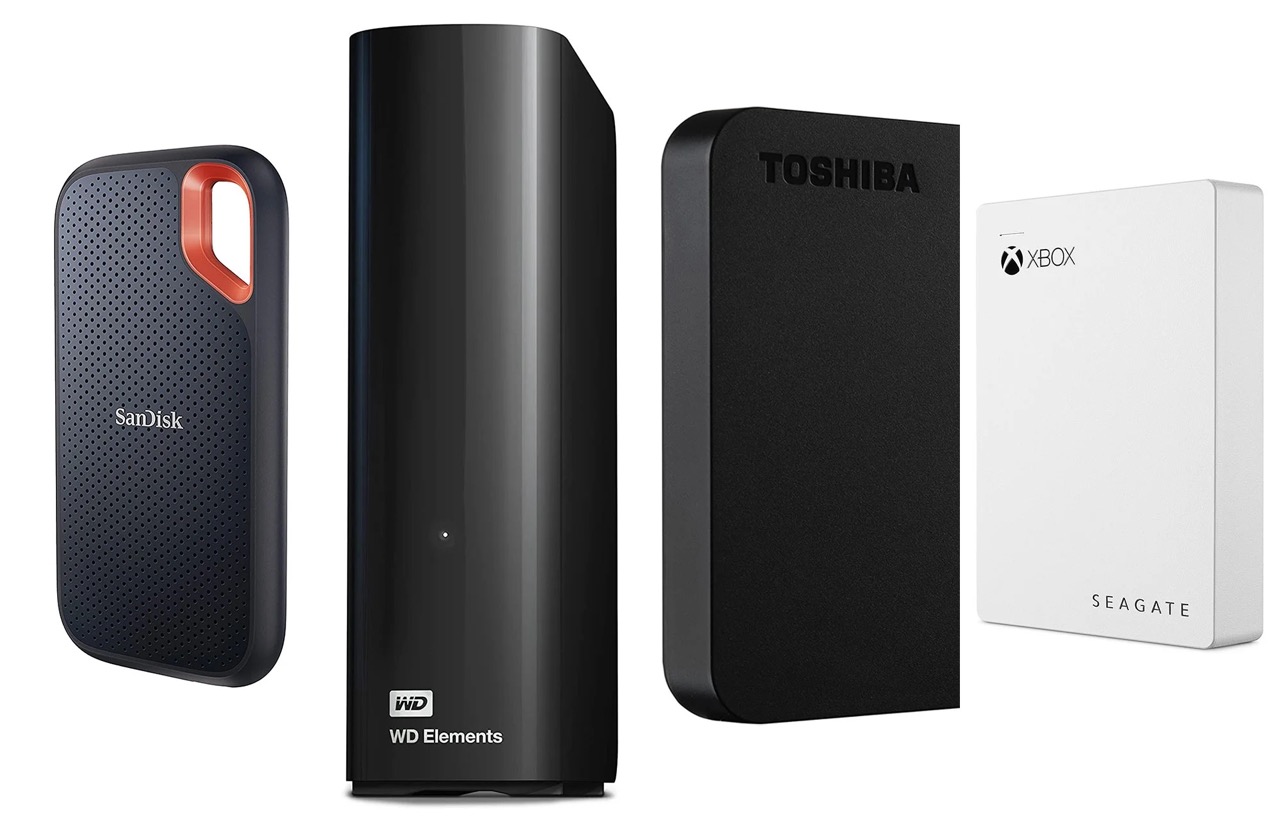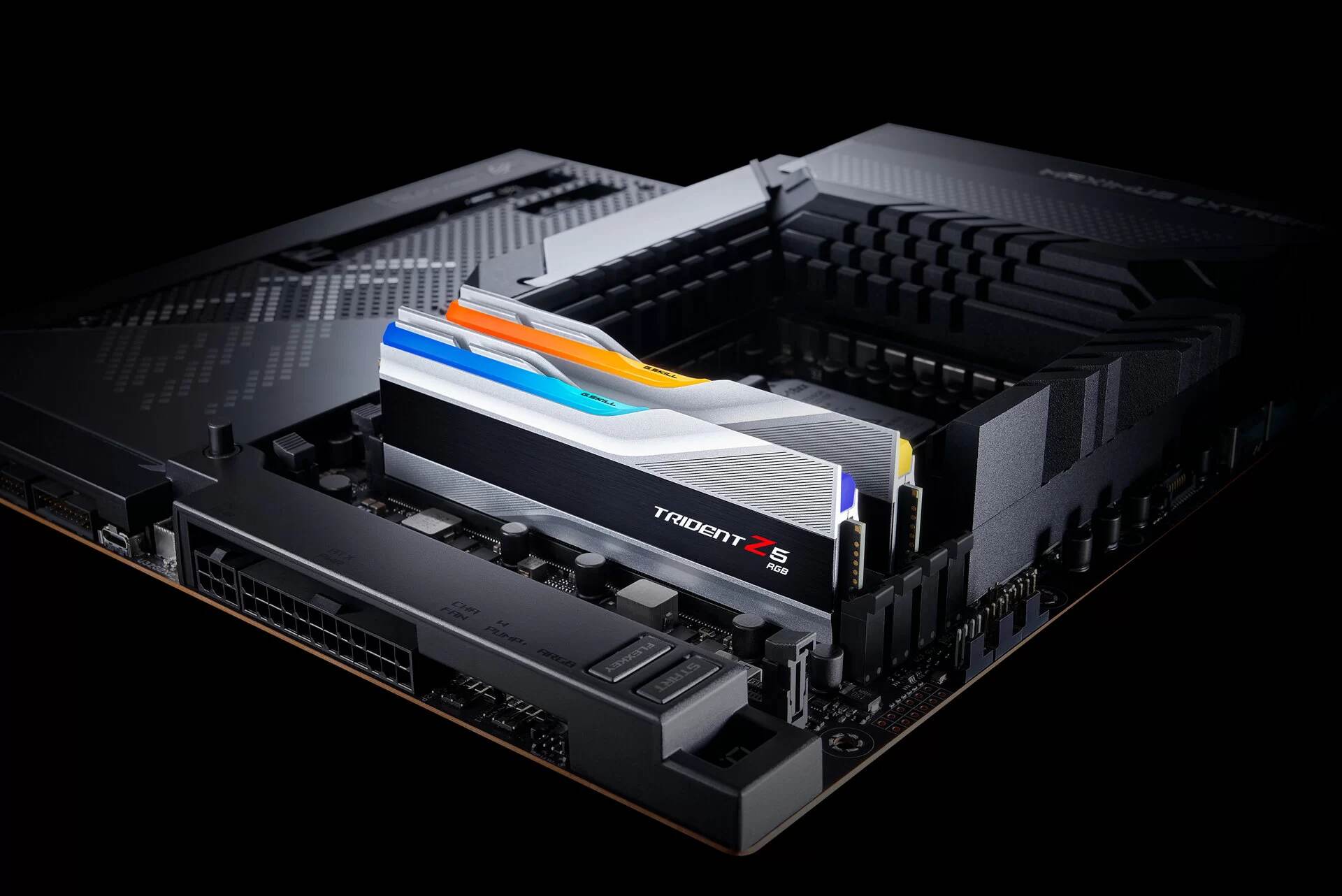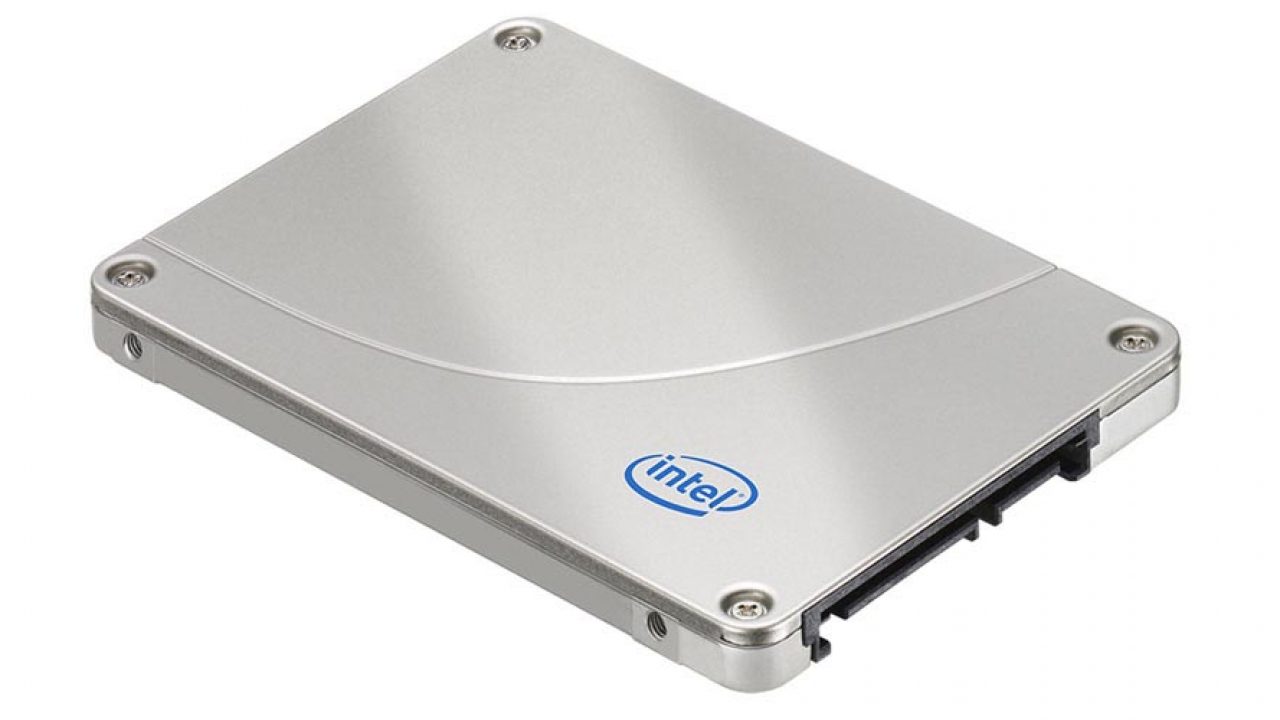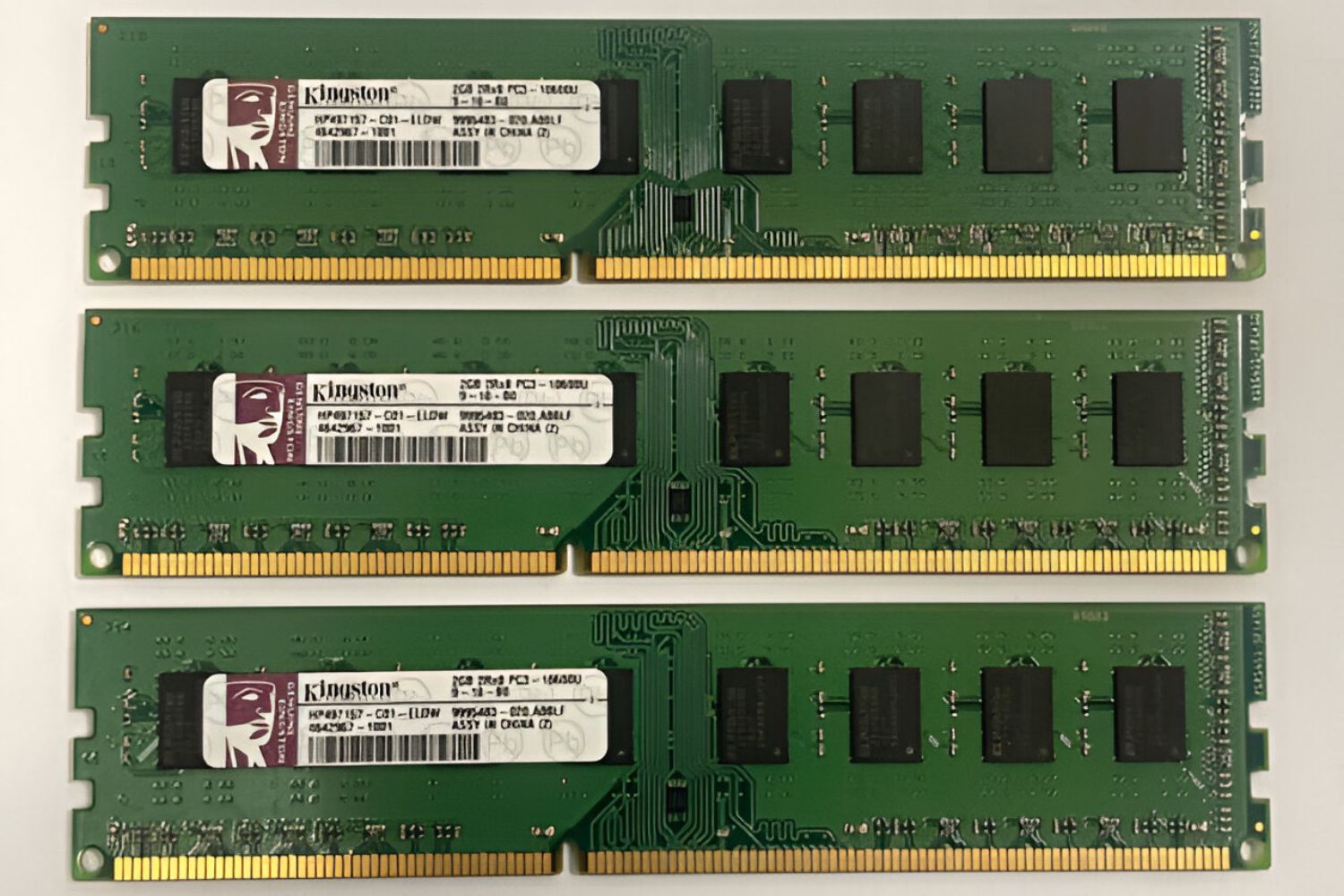Introduction
Online gaming has become increasingly popular in recent years, with players around the world immersing themselves in virtual worlds and engaging in thrilling multiplayer battles. To fully enjoy the gaming experience, various factors come into play – from powerful graphics cards to fast internet connections. However, one often overlooked aspect that can significantly impact online gaming performance is the speed of your hard drive.
When we talk about hard drive speed, we’re referring to how quickly data can be read from or written to the hard drive. This can have a direct effect on loading times, in-game performance, and the overall smoothness of your gaming sessions. In this article, we will explore just how much of a difference hard drive speed can make in online gaming.
Imagine this scenario: you’re about to start an intense multiplayer match, and the countdown begins. As the timer reaches zero, you find yourself still staring at a loading screen while other players are already in the game, ready to dominate. Frustrating, right? Well, a faster hard drive can significantly reduce those excruciating loading times, allowing you to jump into the action much quicker.
But the benefits of a fast hard drive don’t stop at loading times. Lag and latency are two infamous enemies of online gamers, causing delays and impacting real-time gameplay. A slow hard drive can contribute to increased lag and latency, resulting in slower player movement, delayed actions, and a generally less responsive gaming experience.
On the other hand, a high-speed hard drive can deliver smooth and seamless gameplay, allowing you to react quickly and effortlessly to in-game situations. Whether it’s navigating through complex virtual environments or engaging in intense firefights, every millisecond counts. A fast hard drive can help reduce input delay and provide a more immersive gaming experience.
In addition to individual performance, hard drive speed is especially crucial in multiplayer gaming. When playing online with others, your hard drive has to quickly process and deliver data to keep everyone in sync. A slow hard drive may cause discrepancies in the game’s state, leading to synchronization issues and unpleasant gaming sessions for you and your teammates.
It’s important to understand that not all hard drives are created equal. Traditional hard disk drives (HDDs) have been the standard for many years, offering large storage capacities at affordable prices. However, solid-state drives (SSDs) have gained popularity due to their faster read and write speeds, resulting in improved gaming performance.
In the next sections, we will delve deeper into the differences between HDDs and SSDs, and the factors you should consider when choosing a hard drive for online gaming. With the exponential growth of online gaming and the increasing demand for fast and seamless experiences, it’s essential to ensure that your hardware, including your hard drive, can keep up.
Definition of hard drive speed
Before we dive into the importance of hard drive speed in online gaming, let’s first understand what exactly it means. Hard drive speed refers to how quickly data can be read from or written to the hard drive. It is often measured in terms of the rotational speed for traditional hard disk drives (HDDs) or the access speed for solid-state drives (SSDs).
For HDDs, the rotational speed is measured in revolutions per minute (RPM). The higher the RPM, the faster the platters inside the hard drive can spin, allowing for quicker data access. Common RPM values for HDDs include 5400 RPM, 7200 RPM, and in some cases, even 10,000 RPM.
On the other hand, SSDs don’t have moving parts like HDDs. Instead, they use NAND flash memory chips to store data. The speed of an SSD is determined by its access time, which is the time it takes for the drive to locate and retrieve data. SSDs generally have faster access times compared to HDDs, resulting in quicker data transfers and improved overall performance.
It’s important to note that hard drive speed is not the only factor that affects overall system performance. The speed of other components, such as the CPU and graphics card, also play a significant role. However, when it comes to gaming, the speed of your hard drive can have a noticeable impact on certain aspects of gameplay.
As games continue to become more visually complex and data-intensive, the speed at which game assets, including textures, models, and sound files, can be loaded from the hard drive becomes crucial. Faster hard drive speeds can significantly reduce loading times, allowing you to jump into the game quicker without waiting for long loading screens.
In addition, games often require continuous data streaming, especially in open-world environments or multiplayer settings. A faster hard drive can ensure that data is read and delivered in a timely manner, reducing instances of lag and latency. This means smoother gameplay, fewer delays in character movements, and faster response times to your inputs.
While hard drive speed is an essential factor to consider for an optimal gaming experience, it’s worth mentioning that it’s not the sole determinant. Other factors, such as the amount of available memory (RAM), the graphics card’s capabilities, and the stability of your internet connection, also contribute to overall gaming performance. It’s the combination of all these components working together that creates an immersive and seamless gaming experience.
Importance of hard drive speed in online gaming
In the world of online gaming, where split-second decisions and lightning-fast reactions can make all the difference, the importance of hard drive speed should not be underestimated. A fast hard drive can significantly enhance your gaming experience in several ways, from faster loading times to reduced lag and improved overall performance.
One of the primary benefits of a high-speed hard drive in online gaming is faster loading times. When launching a game or transitioning between different game areas, the hard drive is responsible for retrieving data and loading it into the system’s memory. A slow hard drive can cause substantial delays during this process, resulting in prolonged loading screens that disrupt the flow of gameplay. On the other hand, a fast hard drive can swiftly load game assets, allowing you to enter the game world without unnecessary waiting times, providing a more seamless and immersive experience.
Reduced lag and latency is another crucial advantage of a fast hard drive. Lag, characterized by noticeable delays between your actions and their corresponding effects in the game world, can be frustrating and detrimental to your performance. A slow hard drive can contribute to increased lag and latency, causing sluggish response times and hindering your ability to react quickly in fast-paced online battles. With a high-speed hard drive, data can be read and processed more efficiently, minimizing input delay and providing a smoother and more responsive gaming experience.
Furthermore, the overall performance of your gaming system can be greatly improved with a fast hard drive. Games often require continuous data streaming, especially in instances where large amounts of data need to be loaded dynamically during gameplay. This could include rendering complex environments, loading high-resolution textures, or streaming audio and video assets. A slow hard drive may struggle to keep up with these demands, resulting in performance bottlenecks and stuttering gameplay. In contrast, a high-speed hard drive can handle data transfers more efficiently, ensuring a steady flow of necessary game data and providing a more fluid and enjoyable gaming experience.
When it comes to multiplayer gaming, the importance of hard drive speed becomes even more pronounced. In multiplayer games, data must be constantly exchanged between the client (your computer) and the game server, as well as between all connected players. A slow hard drive can slow down these data transmissions, resulting in discrepancies in game states and synchronization issues. This can lead to situations where you and other players are experiencing different game environments or conflicting information, causing frustration and disrupting team dynamics. With a fast hard drive, data can be quickly retrieved and sent, ensuring smooth and synchronized gameplay with others.
Before concluding, it’s important to note that the type of hard drive you choose also plays a significant role in gaming performance. Solid-state drives (SSDs) are known for their superior speed compared to traditional hard disk drives (HDDs). SSDs utilize flash memory technology, offering faster read and write speeds, quicker data access times, and improved overall performance. While they are generally more expensive than HDDs, investing in an SSD can provide a substantial boost to your gaming experience, reducing loading times and enhancing overall system responsiveness.
In summary, the speed of your hard drive can make a noticeable difference in online gaming. From faster loading times and reduced lag to improved overall performance and synchronized multiplayer experiences, a high-speed hard drive can significantly enhance your gaming sessions. When considering the hardware components of your gaming system, don’t overlook the importance of choosing a fast and efficient hard drive to elevate your gaming performance.
Faster loading times
One of the most immediate and tangible benefits of having a high-speed hard drive in online gaming is the significant reduction in loading times. Loading screens are a common occurrence when starting a game, transitioning between levels, or accessing different areas within a game world. These moments of waiting can impede the flow of gameplay and disrupt the immersive experience.
A fast hard drive can greatly diminish these loading times, allowing you to jump into the action more quickly and seamlessly. When you launch a game or load a new level, the hard drive is responsible for retrieving all the necessary data and loading it into the system’s memory. This can include game assets such as textures, character models, sound files, and level geometry.
A slow hard drive can struggle to retrieve and process this data efficiently, causing prolonged loading screens that can be frustrating and tedious. However, with a high-speed hard drive, the data can be read and transferred much more swiftly, resulting in faster loading times and a smoother transition into the game world.
Imagine being able to go from the game’s main menu to the start of a level in a matter of seconds, instead of waiting minutes for the loading process to complete. Not only does this optimize your gaming time and keep the momentum going, but it also enhances the overall enjoyment of the gaming experience.
Faster loading times are particularly advantageous in games with large open-world environments or those that require frequent loading of detailed assets. In such games, moving from one area to another often involves loading a vast amount of data, including complex geometries, high-resolution textures, and intricate soundscapes.
With a slow hard drive, these loading processes can be time-consuming and may lead to extended periods of waiting, breaking the immersion and interrupting the gameplay flow. Conversely, a high-speed hard drive can swiftly load these data-intensive assets, allowing for a more seamless and engaging gaming experience.
Additionally, fast loading times can be especially beneficial in multiplayer games or games with asynchronous multiplayer elements. When joining a multiplayer match or connecting to a game server, a fast hard drive can ensure that you quickly enter the game world, reducing the waiting time for both you and other players.
Whether you’re eagerly waiting to jump into an intense multiplayer battle or exploring a vast virtual landscape, faster loading times provided by a high-speed hard drive can significantly enhance your gaming experience. By minimizing waiting periods and keeping you engaged in the action, a fast hard drive can contribute to a seamless and immersive gaming session.
Reduced lag and latency
In online gaming, lag and latency are common adversaries that can hinder your performance and diminish the overall enjoyment of the gaming experience. These terms refer to the delay between your actions and their corresponding effects in the game world, caused by delays in data transmission and processing.
A slow hard drive can contribute to increased lag and latency, as it may struggle to read and process data quickly enough to keep up with the demands of real-time gameplay. This can result in delayed character movements, sluggish response times to your inputs, and a generally less responsive gaming experience.
On the other hand, a high-speed hard drive can help reduce lag and latency, allowing for smoother and more responsive gameplay. When you perform an action in the game, such as firing a weapon or executing a skill, the data associated with that action needs to be sent to the game server, processed, and then reflected in the game world. A slow hard drive can introduce delays in transmitting and processing this data, causing noticeable lag.
With a fast hard drive, data can be swiftly read and processed, reducing the time it takes for your actions to be registered and reflected in the game. This translates to more immediate and fluid gameplay, enabling you to react quickly to in-game situations and giving you a competitive edge in fast-paced multiplayer battles.
Reduced lag and latency can be particularly crucial in competitive multiplayer games, where split-second decisions and lightning-fast reactions can determine the outcome of a match. In such games, even a slight delay in your actions can be detrimental to your performance and give your opponents an advantage.
Imagine trying to dodge incoming projectiles or perform precise actions with a noticeable delay between your inputs and their effects. This can not only be frustrating but also significantly impact your ability to strategically maneuver and outplay your opponents.
A high-speed hard drive can help mitigate these issues by minimizing input delay and ensuring that your actions are reflected in the game world as quickly as possible. This improves your overall responsiveness, allowing you to execute actions with greater precision and finesse.
Furthermore, reduced lag and latency can enhance the overall fluidity and smoothness of gameplay. When there are delays in receiving and processing data, it can lead to a fragmented and disjointed gaming experience, with jumpy character movements and inconsistent interactions with the game world.
With a high-speed hard drive, data can be read and processed more efficiently, resulting in a more consistent and seamless gaming experience. This enhances the immersion and allows you to fully immerse yourself in the virtual world without being hindered by noticeable delays or disruptions in gameplay.
By investing in a high-speed hard drive, you can significantly reduce lag and latency, providing a smoother, more responsive, and enjoyable online gaming experience. Whether you’re engaging in intense multiplayer battles or exploring vast virtual landscapes, a fast hard drive can help ensure that your actions are executed swiftly and accurately, giving you a competitive edge and enhancing your overall gaming performance.
Enhanced gaming performance
In the world of online gaming, performance is king. Every gamer wants their games to run smoothly, allowing them to fully immerse themselves in the virtual worlds they explore and compete in. A key aspect that can significantly impact gaming performance is the speed of your hard drive.
A high-speed hard drive can greatly enhance your gaming performance in several ways. By providing faster data access and transfer speeds, it ensures that game assets, such as textures, models, and sound files, are loaded swiftly and efficiently. This minimizes any delays or pauses during gameplay, allowing for a seamless and uninterrupted experience.
When games are running on systems with slower hard drives, the constant need to read and load data from the hard drive can cause performance bottlenecks, leading to stuttering or lower frame rates. This can result in choppy visuals, disruptions in gameplay flow, and a less immersive gaming experience.
With a high-speed hard drive, data can be retrieved and processed quickly, enabling smoother gameplay and improved overall performance. Whether you’re exploring open-world environments, engaging in intense firefights, or navigating complex virtual landscapes, a fast hard drive ensures that your gaming experience remains fluid and responsive.
Another aspect of enhanced gaming performance is the reduction of texture pop-ins and streaming issues. In games with large and intricate environments, textures and other assets need to be loaded dynamically as you move through the game world. A slow hard drive can struggle to load these assets in real-time, resulting in visible pop-ins and instances where textures or objects may suddenly appear out of nowhere.
On the other hand, a high-speed hard drive can swiftly retrieve and load these assets, reducing or eliminating texture pop-ins and ensuring that the game world appears fully realized and immersive. This allows you to appreciate the detailed environments without any distractions or visual inconsistencies.
Furthermore, a fast hard drive can enhance the overall stability and responsiveness of your gaming system. A slow hard drive can create performance bottlenecks that impact other components of your system, such as the CPU and GPU. This can result in reduced frame rates, increased input lag, and longer loading times for not only game assets but also system functions and background processes.
By investing in a high-speed hard drive, you can alleviate these bottlenecks and create a more balanced and optimized gaming system. This ensures that your hardware components can work together harmoniously, maximizing their capabilities and delivering a smooth and enjoyable gaming experience.
Additionally, a fast hard drive can also contribute to shorter system boot times and faster application launches. This means that you can get into your games more quickly and spend more time actually playing rather than waiting for the system to start up or for the game to load.
In summary, a high-speed hard drive plays a vital role in enhancing gaming performance. By minimizing loading times, reducing performance bottlenecks, and ensuring smooth data access and transfer, a fast hard drive allows your games to run more smoothly and efficiently. Whether it’s eliminating stuttering and choppy visuals, reducing texture pop-ins, or improving overall system responsiveness, a high-speed hard drive is a valuable investment for any serious gamer.
Impact on multiplayer gaming
Multiplayer gaming brings together players from all around the world, allowing them to compete, cooperate, and connect in virtual worlds. In this dynamic and social gaming environment, the speed of your hard drive can have a significant impact on your multiplayer gaming experience.
One of the key areas where hard drive speed influences multiplayer gaming is in the synchronization of game data. When playing multiplayer games, data needs to be continuously exchanged between your computer and the game server, as well as between all the connected players. This data includes vital information such as player positions, actions, and events happening within the game world.
A slow hard drive can struggle to read and transmit this data quickly enough, leading to synchronization issues and discrepancies between players. This can result in lag, desynchronization of game states, and an inconsistent experience for everyone involved. It can be frustrating when you and your teammates or opponents experience different game environments or conflicting information due to slow data transmission from a player with a slower hard drive.
However, with a high-speed hard drive, data can be rapidly retrieved, processed, and transmitted, ensuring that all players in the multiplayer game are on the same page. This leads to a synchronized and cohesive gaming experience, where everyone sees the game world in real-time and can interact with each other without any noticeable delays or inconsistencies.
In addition to synchronization, a fast hard drive can also improve the overall stability and responsiveness of multiplayer gaming sessions. In complex and fast-paced multiplayer battles, every millisecond counts. However, a slow hard drive can introduce delays in delivering crucial game data, resulting in delayed reactions and stealthy players having an unfair advantage.
A high-speed hard drive can help minimize these delays, allowing for smoother and more responsive gameplay in multiplayer scenarios. This ensures a level playing field for all players, enabling them to react quickly to in-game events and engage in intense battles without being hindered by the limitations of a slower hard drive.
Moreover, a fast hard drive can contribute to a more enjoyable and immersive multiplayer gaming experience. Multiplayer games often involve constant action, with players interacting with each other and the game world in real-time. This requires seamless and uninterrupted gameplay that can only be achieved with a high-speed hard drive.
Imagine engaging in a thrilling multiplayer battle, only to experience lag, stuttering, or delayed actions due to a slow hard drive. These interruptions can negatively impact your overall gaming experience and make it difficult to enjoy the competitive and social aspects of multiplayer gaming.
However, with a fast hard drive, you can fully immerse yourself in the multiplayer game, with smooth gameplay, quick response times, and a sense of being connected with other players. This enhances the social aspect of multiplayer gaming, allowing you to communicate, strategize, and compete seamlessly with teammates and opponents from around the globe.
In summary, the speed of your hard drive has a significant impact on multiplayer gaming. It affects the synchronization of game data, the stability and responsiveness of gameplay, and the overall enjoyment and immersion in the multiplayer experience. Investing in a high-speed hard drive ensures that you can engage in multiplayer battles and cooperative gameplay without being hindered by synchronization issues, lag, or delays, allowing you to fully enjoy the dynamic and social aspects of multiplayer gaming.
Differences in hard drive types (HDD vs SSD)
When it comes to selecting a hard drive for your gaming needs, one important consideration is the type of hard drive you choose. The two main types are traditional hard disk drives (HDDs) and solid-state drives (SSDs). Each has its own set of advantages and limitations, which can impact your gaming experience.
Traditional hard disk drives (HDDs) have been the standard for many years. They consist of spinning platters that store data magnetically, with a read/write head that moves across the platters to access and transfer data. HDDs offer large storage capacities at relatively affordable prices, making them a popular choice for storing games, media, and other files.
However, HDDs are not as fast as SSDs. HDDs have slower read and write speeds due to the mechanical nature of their operation. This can result in longer loading times, increased lag, and slower overall system performance in gaming. While HDDs can still provide satisfactory gaming experiences, they may struggle with data-intensive games or those with large open-world environments that require frequent data access.
On the other hand, solid-state drives (SSDs) have gained popularity in recent years due to their superior speed and performance. SSDs use flash memory technology, which allows for faster data access and transfer speeds compared to HDDs. Instead of relying on moving parts, SSDs use integrated circuits to store data, resulting in virtually no mechanical delays.
SSDs offer significant advantages for gaming. The fast read and write speeds of SSDs can greatly reduce loading times, allowing you to jump into games and levels almost instantly. This means less time waiting and more time playing. SSDs also deliver smoother gameplay with reduced lag and latency, ensuring a more responsive experience during online multiplayer battles and fast-paced action.
In addition to faster performance, SSDs are also more durable than HDDs. Since SSDs don’t have any moving parts, they are less susceptible to physical damage from shocks and vibrations. This makes them particularly suitable for laptops or portable gaming systems, where mobility is a factor.
Although SSDs offer numerous advantages, they are generally more expensive than HDDs when it comes to cost per gigabyte of storage. This means that SSDs may have smaller storage capacities compared to HDDs within the same price range. However, the price per gigabyte of SSD storage has been decreasing over time, making them more accessible and affordable.
Some gamers opt for a combination of both HDD and SSD storage. They use an SSD as the primary drive to install the operating system, frequently played games, and frequently accessed applications. Meanwhile, they use an HDD as a secondary drive for storing less accessed files and larger game libraries.
Ultimately, the choice between an HDD and an SSD comes down to your specific needs and budget. If you prioritize speed, fast loading times, and seamless gameplay, then investing in an SSD is a wise choice. On the other hand, if you require large storage capacities at a lower cost, an HDD may be more suitable.
A combination of both types can provide the best of both worlds, where you can enjoy the speed and performance benefits of an SSD for frequently played games, while having the additional storage capacity of an HDD for less demanding files.
In summary, HDDs and SSDs differ in terms of speed, performance, durability, and cost. SSDs offer faster data access and transfer speeds, resulting in quicker loading times, reduced lag, and overall improved gaming performance. HDDs provide larger storage capacities at a lower cost, making them suitable for storing large game libraries. Consider your specific needs and budget to choose the best hard drive type for your gaming experience.
Factors to consider when choosing a hard drive for online gaming
When selecting a hard drive for online gaming, several important factors must be taken into consideration to ensure optimal performance and an enjoyable gaming experience. Here are some key factors to keep in mind when choosing a hard drive:
Speed: The speed of the hard drive is crucial for smooth gaming performance. Consider opting for a high-speed hard drive, such as a solid-state drive (SSD), which offers faster data access and transfer speeds compared to traditional hard disk drives (HDDs). A fast hard drive can significantly reduce loading times, minimize lag, and provide a more responsive gaming experience.
Storage capacity: Determine how much storage capacity you’ll need for your gaming needs. Take into account the size of modern games, which can require several gigabytes or even tens of gigabytes of storage space. If you tend to have a large library of games or store other media files, consider opting for a larger capacity hard drive to accommodate your needs.
SSD or HDD: Decide whether you want to invest in a solid-state drive (SSD) or choose a traditional hard disk drive (HDD). SSDs offer faster speeds, quicker loading times, and improved overall performance, while HDDs provide larger storage capacities at a lower cost per gigabyte. Consider your budget and prioritization of speed versus storage capacity when making this decision.
Reliability and durability: Look for a hard drive that is reliable and durable, especially if you plan on gaming for long hours or traveling with your gaming system. SSDs are generally more durable than HDDs since they lack moving parts, making them less susceptible to physical damage from shocks or vibrations. However, it’s always wise to choose a hard drive from a reputable brand known for its reliability.
Interface: Consider the interface of the hard drive and its compatibility with your gaming system. Most modern hard drives use the SATA (Serial ATA) interface, which is compatible with the majority of desktop and laptop computers. However, if you have a newer gaming system, you may want to consider NVMe (Non-Volatile Memory Express) SSDs, which utilize a faster interface for even better performance.
Price: Set a budget for your hard drive purchase and consider the price of the hard drive in relation to its features and performance. SSDs typically tend to be more expensive than HDDs, but their prices have been decreasing over time. Determine how much you’re willing to spend and weigh it against the performance benefits you’ll receive.
Compatibility: Ensure that the hard drive you choose is compatible with your gaming system. Check the specifications and requirements of your gaming system to verify if the hard drive will work seamlessly with your hardware and operating system.
Reviews and recommendations: Before making a final decision, read reviews and seek recommendations from other gamers or tech experts. Online forums, gaming communities, and professional review websites can provide valuable insights into the performance and reliability of different hard drive options, helping you make an informed decision.
By considering these important factors when choosing a hard drive for online gaming, you can ensure that your gaming system is equipped with a high-performance, reliable, and compatible storage solution that enhances your gaming experience to its fullest potential.
Conclusion
In the world of online gaming, the speed of your hard drive can make a significant difference in your gaming experience. Whether you’re playing single-player campaigns, engaging in intense multiplayer battles, or exploring vast virtual worlds, a fast hard drive can greatly enhance various aspects of your gaming sessions.
A high-speed hard drive, such as a solid-state drive (SSD), offers faster data access and transfer speeds compared to traditional hard disk drives (HDDs). This translates into reduced loading times, smoother gameplay, minimized lag, and improved overall performance.
With faster loading times, you can jump into your games quickly and seamlessly, without frustrating delays. Reduced lag and latency ensure more responsive gameplay, allowing you to react swiftly and accurately to in-game situations. Furthermore, a high-speed hard drive contributes to enhanced gaming performance, providing a stable and immersive experience free from interruptions and performance bottlenecks.
Choosing the right hard drive for online gaming entails considering several factors. The speed, storage capacity, reliability, and interface of the hard drive are all important considerations. Additionally, you’ll need to weigh the advantages of an SSD, such as faster speeds, against the larger storage capacities and lower costs per gigabyte offered by HDDs.
Ultimately, the choice of hard drive depends on your specific needs and budget. Whether you opt for a lightning-fast SSD or a high-capacity HDD, ensuring the compatibility of the hard drive with your gaming system is paramount. Reading reviews and seeking recommendations from other gamers can provide valuable insights to make an informed decision.
By investing in a high-speed hard drive that meets your gaming requirements, you can elevate your gaming experience to new heights. Faster loading times, reduced lag, improved performance, and seamless multiplayer gaming are just some of the benefits you can expect. Choose wisely, and prepare to embark on epic gaming adventures fueled by the power of a high-speed hard drive.









